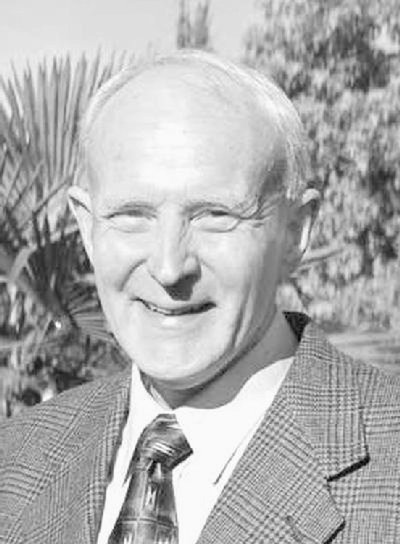February 21, 2002
Bruce Bare named dean of College of Forest Resources
Longtime UW Professor Bruce Bare, an expert on the economics, management and sustainable use of forestlands, has been named dean of the College of Forest Resources by President Richard L. McCormick. The UW Board of Regents approved his appointment last week.
Bare, who has been acting dean since May 2001, leads a college with 56 faculty who conduct research and teaching in areas such as ecosystem sciences and conservation, forest management, forest engineering, paper science and forest products marketing. It also has a program in environmental horticulture and urban forestry covering such topics as the management of trees, forests and wetlands found in urban and suburban areas. Last year the college brought in $7.5 million in research grants and contracts.
Besides its 260 undergraduate and 210 graduate students, the college has a major outreach program providing education and the latest research to professional foresters, private and public land managers, urban horticulturists and the public.
Bare’s growing interest in recent years in “sustainability” coincides with what faculty, staff and students are saying should be the focus of the college. Sustainability ranges from managing forests for environmental health and a variety of products, to keeping urban areas livable with swaths of “green” and wildlife, to using and re-using materials wisely.
“Our vision is to have a program emphasizing the stewardship of natural and managed environments and the sustainable use of their products and services,” Bare said. “The college must be the source of information for solutions to environmental and natural resource problems.”
Indeed, as McCormick said, “The heavily forested nature of Washington, the complexity of our region’s environments, the economics and social dimensions of environmental issues, and the demand for education and new knowledge connected to these subjects underscores the importance of UW work in forest resources.”
McCormick said that since Bare took over as acting dean last spring, “he has shown the kind of forward-looking, imaginative leadership the college needs right now. I’m confident the college is on the right track.”
When Bare became acting dean, McCormick and Provost Lee Huntsman took the opportunity to create a committee to chart new directions for the College of Forest Resources because the region and industry had changed substantially in recent years.
The report (see http://faculty.washington.edu/bare/chart.doc) from a 15-member committee led by Sue Hegyvary, UW professor of biobehavioral nursing and health systems, said the college should take advantage of strengths such as:
- an outstanding, active, devoted advisory board composed of alumni, industry leaders, public agency representatives and donors;
- the recent progress toward a new undergraduate program, indicating, at least tentatively, that the college’s faculty are capable of working together to achieve important goals;
- the emergence of a new vision for the college based on the concept of sustainability;
- the national reputation of some of the faculty in diverse disciplines related to forestry and the environment; and
- several new collaborative ventures with other UW schools and colleges, as well as cooperative initiatives with several external agencies.
“Using the unifying concepts of environmental and resource sustainability, we have embarked on a transformation of the college,” Bare said at an all-college meeting last month. “This requires a shift in how we package and deliver educational material to our clients and how our programs are funded.
“We must think more holistically and adopt a more integrated view, we must recognize the competing environmental, social and economic demands of society and devise new ways to resolve resource conflicts, and we must continue to search for new knowledge and to provide information to decision makers,” Bare said.
Bare earned his bachelor’s and doctoral degrees from Purdue University and his master’s from the University of Minnesota. He has been a UW faculty member since 1969. He has an adjunct faculty appointment in the UW School of Aquatic and Fishery Sciences, and had been the director since 1996 of the Center for Quantitative Science, an interdisciplinary unit providing tools for mathematical and statistical analysis of biological, environmental and natural resource problems.
Bare’s salary will be $153,000.



